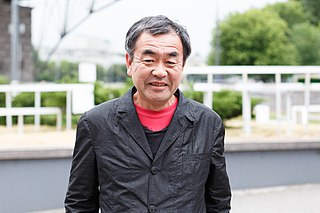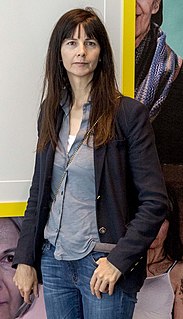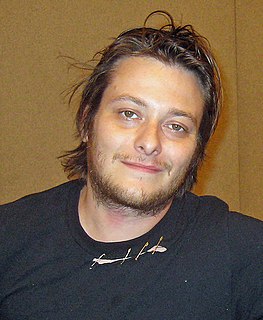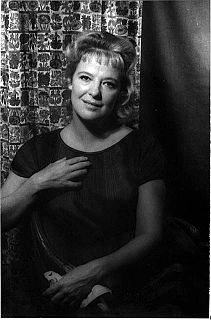A Quote by Simon McBurney
We try to place the human body in relation to the image all the time, so it's never a kind of a backdrop, but it's more of ...a much more integrative experience.
Related Quotes
You could say that my aim is ‘to recover the place’. The place is a result of nature and time; this is the most important aspect. I think my architecture is some kind of frame of nature. With it, we can experience nature more deeply and more intimately. Transparency is a characteristic of Japanese architecture; I try to use light and natural materials to get a new kind of transparency.
There's a kind of luck that's not much more than being in the right place at the right time, a kind of inspiration that's not much more than doing the right thing in the right way, and both only really happen to you when you empty your heart of ambition, purpose, and plan; when you give yourself, completely, to the golden, fate-filled moment.
...the mind is more powerful than any imaginable particle accelerator, more sensitive than any radio receiver or the largest optical telescope, more complete in its grasp of information than any computer: the human body- its organs, its voice, its powers of locomotion, and its imagination- is a more-than-sufficient means for the exploration of any place, time or energy level in the universe.
Ayurveda is the science of life and it has a very basic, simple kind of approach, which is that we are part of the universe and the universe is intelligent and the human body is part of the cosmic body, and the human mind is part of the cosmic mind, and the atom and the universe are exactly the same thing, but with different form, and the more we are in touch with this deeper reality, from where everything comes, the more we will be able to heal ourselves and at the same time heal our planet.
Now that the most interesting matter of identity is not what place someone was born in, but what point in time they are from - where they sit in relation to time. Age has become much more divisive than place. With the Internet and globalization, a twenty-year-old in New York has far more cultural references in common with a twenty-year-old in Nebraska than they do with a thirty-year-old who lives next door. National identity is what they trick you with when they want your feet in their army boots or your taxes in their bailouts.
Different ages have certain approaches, which may be more effective for one age and no longer effective in another age. The world that we live in now has much greater density to it; it is much more all-pervasive. And when I say "world," I include the human mind in it. The human mind has grown even since the time of the Buddha, 2,500 years ago. The human mind is more noisy and more all-pervasive, and the egos are bigger.
These days I just can't seem to say what I mean [...]. I just can't. Every time I try to say something, it misses the point. Either that or I end up saying the opposite of what I mean. The more I try to get it right the more mixed up it gets. Sometimes I can't even remember what I was trying to say in the first place. It's like my body's split in two and one of me is chasing the other me around a big pillar. We're running circles around it. The other me has the right words, but I can never catch her.
As I get older, I'm more willing to take on more, I guess. I feel more comfortable kind of being different characters and kind of stretching it a little more. Like with The Visitation. At least for me, being an actor, I have to draw from human experiences, so it was kind of a stretch playing that role. Kind of supernatural... kind of like what I did in The Crow actually.
You create a friendship on a level that you've never done before. The basic kind of experience is to basically give love to total strangers all the time, and that really changed everything in me. And this piece transformed me more than any other one before. I saw my entire life differently. What do I have to do? What is my passion on this planet? I'm much more focused than I ever was before.




































